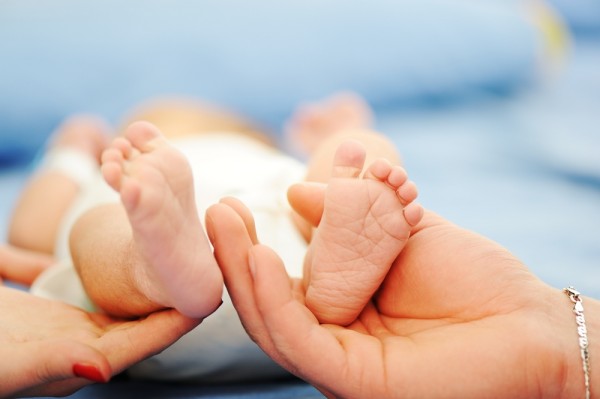Respecting life does not always end with a bright-eyed newborn charming away familial disapproval or the pain of an empty crib for adoptive parents. There is not always a happy testimony with a chubby cutie.
Sometimes, respecting life means a mother must embrace a child with profound problems and love him or her as God’s little one. I’ve heard that in my grandmother’s day, pious Catholics would trace the sign of the cross over themselves when meeting someone with disabilities, recognizing that they were in the presence of an innocent soul headed straight for heaven. Some may wag their fingers at romanticizing the spirituality of a bygone era, but such a posture shows both the height of Christian loving and the depth of our Holy Faith’s teaching on human dignity and redemptive suffering.
“How can people coexist, much less flourish, in a society lacking the shared belief that we are called to care for those unable to care for themselves, not to neglect, abuse, or kill them?” — the United States Conference of Catholic Bishops, 2012.
“Moved by so much suffering, Christ not only allows Himself to be touched by the sick, but He makes their miseries His own: ‘He took our infirmities and bore our diseases.’ (Isaiah 53:4). But he did not heal all the sick. His healings were signs of the coming of the Kingdom of God…By His passion and death on the cross, Christ has given a new meaning to suffering. It was henceforth to configure us to Him and unite us with His redemptive Passion.” — Catechism of the Catholic Church, 1505.
Ill, troubled babies are killed in utero daily, due to the fear, sorrow, and shock of parents perceiving that they have created a defective child. And rather than sharing the caring, people wonder (and often despicably speak of) why a woman would give birth to a sick kid and spend life easing their pain and lovingly nurturing the sacred life of another human.
One of my favorite examples is a storyline from the Harry Potter series — the werewolf Remus Lupin.
As a child, he was attacked by a werewolf and afflicted with lycanthropy. His parents worked tirelessly for a cure (one was never found), and helped him weather the terrible transformations.
Extra-worried the way parents of chronically ill children are, they nevertheless allowed him to attend Hogwarts School, where young Remus was fearful that his friends would discover his condition and reject him. But when they figured it out, not only did they not reject him, they learned how to temporarily turn themselves into animals in order to remain near their friend and keep him safe while he was suffering as a wolf.
Because of their fierce support, Lupin became tamer during the moon-lit transformations. Living with an illness forced maturity and perception, forming him into an excellent teacher that could encourage the underdogs and put himself in harm’s way to protect the innocent.
Remus married but suffered great mental anguish when he realized he could pass on lycanthropy to his unborn child, “How can I forgive myself when I knowingly risked passing on my own condition to an innocent child? It would be better off without a father of whom it should be ashamed.”
Harry passionately denounced him as a coward; Ron was shocked that their beloved professor would consider himself so worthless; and Hermione tearfully whispered, “How could anyone be ashamed of you?” Eventually, Lupin embraced his family and asked Harry to be his son’s godfather.
(I was bawling all over the books for several chapters at this point.)
We too, have a 25 percent chance of passing on not lycanthropy, but cystic fibrosis to each child we conceive. We trust in our Church’s joy in openness to life and understanding of redemptive suffering. My children have their own life journey to unity with Christ. They bear their own good fruit. Like Mr. and Mrs. Lupin, we work for a cure both with our money and our prayers.
We also have extra-worries when they leave us. We see the loyalty of friends like Remus’ toward our kids that would not be so determined without cystic fibrosis. And we appreciate (mostly in our eldest) the same maturity and perception mixed with recklessness due to chronic illness. Do we recognize the beauty and value of an afflicted life? Of course. Do we work and pray for a cure? Even more.
Remus Lupin made his world a better place; everyone can.
“The grandeur and raison d’être of each person are found in God alone. The unconditional acknowledgement of the dignity of every human being, of each one of us, and of the sacredness of human life, is linked to the responsibility which we all have before God … The close bonds, commitments, and sacrifices for others, once modeled in families and carried into neighborhoods, civic organizations, and communities, have gradually eroded. (Pope Emeritus Benedict XVI 2012)”
May we acknowledge the dignity of every human being and actively reach out with the hands of Jesus to bond, commit, and sacrifice for others. To save lives, to respect life, to make the world a better place for the glory of God.







